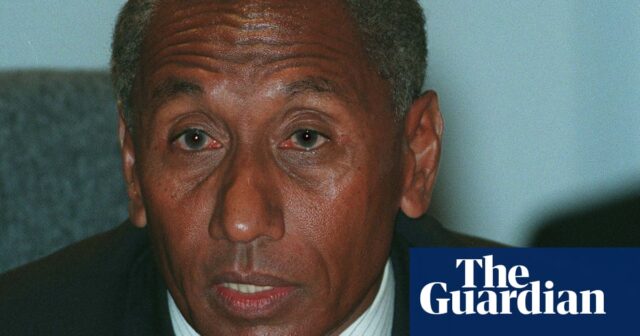The death of Sir Julius Chan, one of the founding fathers of Papua New Guinea’s independence in 1975, marks the end of an era.
Sir J, as he was known, was the “last man standing” from PNG’s first post-colonial government until he died last week at the age of 85 in Huris, New Ireland Province.
As the nation’s first finance minister, Chan led the formation of PNG’s banking and finance systems, going on to lead the nation twice as prime minister (1980-82 and 1994-97).
Forced to relinquish office in 1997 after his controversial hiring of South African mercenaries brought the country to the brink of military revolt, Chan never returned to national politics but served as governor of New Ireland province from 2007, attending his final cabinet meeting only hours before his death.
Born in August 1939 just before the outbreak of the second world war, Julius Chan’s placenta was buried under a buk buk, or local apple tree according to the customs on his mother’s Tanga Island.
His mother, Miriam Tinkoris, an Indigenous Papua New Guinean, had married his father, Chin Pak, a migrant from Guangdong province in China.
Chan told me he realised from an early age that the Chinese community looked down on his father for, as he once put it, “going so low as to marry a black woman”. It was one of his first experiences of racism and discrimination, but certainly not his last.
The fifth of seven children, Chan’s early years were marked by hardship, particularly when Japanese soldiers imprisoned the mixed-race family in the latter months of the war.
At 14, with very little formal education, Chan won a scholarship to Marist College Ashgrove in Brisbane, where he experienced some of his happiest years.
He returned to PNG to help in the family shipping business, which still exists, and in 1968 he was elected to the national assembly aged 27.
For several years he worked in the colonial administration, recalling how his colleague was once told by the manager of a social club in Port Moresby to “finish that beer and get that bastard out of here”. This incident, he said, led to one of the “first public debates about racial discrimination in PNG”.
At 34, Chan was given responsibility for establishing the PNG banking system and was frank about how little he had known. “The world of self-government and independence was an unknown thing, a world we could not see, could not touch,” he said. “But it was something to fight for.”
I first met Sir Julius in 1994 when I was a journalist living in PNG, shortly before he became prime minister for the second time.
These years were marked by several national crises including the Rabaul volcanic eruptions which destroyed his family home, and the longstanding Bougainville civil war.
Chan, who had vowed to solve the Bougainville crisis upon entering office, was propelled to global infamy in 1997 when it emerged that he had secretly hired the Sandline mercenary soldiers in a desperate attempt to end the war.
Despite massive public protests, universal condemnation, and a mutiny by the then head of the PNG military, Sir Julius never once conceded he’d done anything wrong. “No,” he was to tell me later, “even if all the angels in heaven were telling me I was wrong, I was right.”
The electorate disagreed. After almost 30 years in office, he was cast into the political wilderness, only returning to public life a decade later as the governor of New Ireland, a role he held for 18 years.
Political analysts and historians will no doubt reflect on Julius Chan’s contribution to the people of PNG and on his role in shaping the nation’s complex and corrupt political culture. Writing his memoirs, he said, gave him the opportunity to reflect on his achievements, mistakes and values.
‘‘I have always wanted to be able to dictate my own life,’’ Chan told me. ‘‘When I die, I will be buried back at home. In a hundred years from now that is where you can come and visit me. By the sea, at Huris.’’
-
Lucy Palmer, a former foreign correspondent in PNG, was the researcher and writer for Playing the Game: Life and Politics in Papua New Guinea, by Sir Julius Chan, published by the University of Queensland Press in 2016






